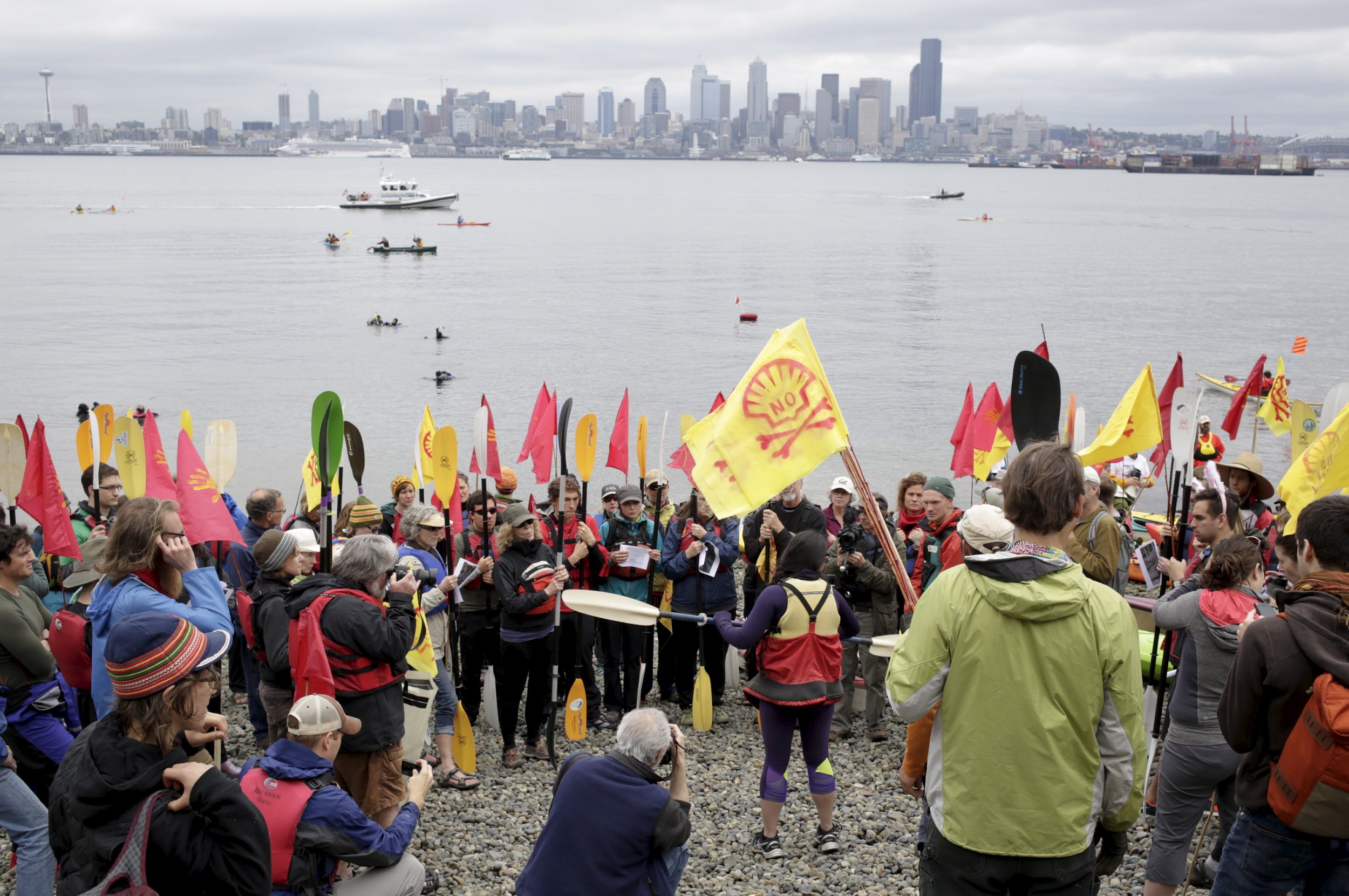
This story originally appeared on The Huffington Post and is reproduced here as part of the Climate Desk Collaboration.
As climate change opens up previously inaccessible areas of the Arctic, a leading conservation group is stressing the urgent need to safeguard this fragile region from threats including oil development and shipping.
In a lengthy report presented Tuesday in Monaco, the International Union for the Conservation of Nature identifies seven "exception areas" in the Arctic Ocean that deserve protection and could qualify for UNESCO's World Heritage list.
"The Arctic Ocean plays a crucial role in shaping global climate and hosts a diverse range of species, many of them threatened," said Carl Gustaf Lundin, director of IUCN's Global Marine and Polar Programme, in a statement.
Spanning nearly 5.5 million square miles, the Arctic Ocean is home to some of the planet's most magnificent creatures, including grey whales, narwhals, polar bears and walruses. But climate change has led to soaring temperatures and rapidly melting sea ice, opening once-inaccessible areas up to fishing, shipping, energy development and even luxury cruise liners.
"These activities have the potential to inflict further stress on Arctic marine ecosystems already straining under the effects of climate change," Prince Albert II of Monaco writes in the report's preface. " I believe we have a historic opportunity, and a profound obligation, to do what we can to educate people around the world about the need to protect ecologically important and sensitive ocean habitats in the Arctic for future generations. The need to act is urgent."
Two polar bears feed on decomposing Narwhal remains.
The IUCN report, supported by Natural Resources Defense Council and the World Wildlife Fund, highlights seven important and highly productive marine areas worthy of protection.
"The Arctic Ocean's beauty and bounty are unparalleled," said Mechtild Rössler, director of UNESCO's World Heritage Centre, in a statement. "From the sea life superhighway of the Bering Strait to the breath-taking fjords of Scoresby Sound, this region is unlike any other on the planet."
The IUCN's warning comes roughly three months after a team of international scientists released the 2016 Arctic Report Card, which painted an equally dire picture of the rapidly changing Arctic, where sea ice has reached record lows and temperatures are warming at twice the rate of the rest of the planet.
Scientists and environmentalists have grown increasingly worried about increased opportunities for fishing and oil and gas development.
In his preface, Prince Albert II referenced the importance of the Paris climate agreement, in which nearly 200 countries committed to reduce carbon emissions―including the U.S. It "represented a crucial step addressing global warming and its effects on the Arctic," he wrote. However, he emphasized the need to protect key habitat from human activity in an effort to make the Arctic more resilient.
In December, the Obama administration permanently blocked offshore drilling in large swaths of the Arctic, a move aimed at better protecting the planet in the face of climate change. President Donald Trump, however, has acted quickly to dismantle his predecessor's climate legacy, and he appears to have given new hope to those who support oil and gas development in Arctic waters.
Trump has also vowed to withdraw the U.S. from the historic Paris climate pact and dismissed climate change as "bullshit" and as a "hoax."
The extent to which global warming has transformed this part of the planet was on full display in September, when the luxury cruise liner Crystal Serenity completed a 32-day voyage through the Northwest Passage—a historically impassable sea route connecting the Pacific and Atlantic oceans.
Rod Downie of the World Wildlife Fund said at the time it was "because the Arctic is in meltdown that this cruise can take place."
Read the full IUCN report here.
Uncommon Knowledge
Newsweek is committed to challenging conventional wisdom and finding connections in the search for common ground.
Newsweek is committed to challenging conventional wisdom and finding connections in the search for common ground.
About the writer
To read how Newsweek uses AI as a newsroom tool, Click here.








